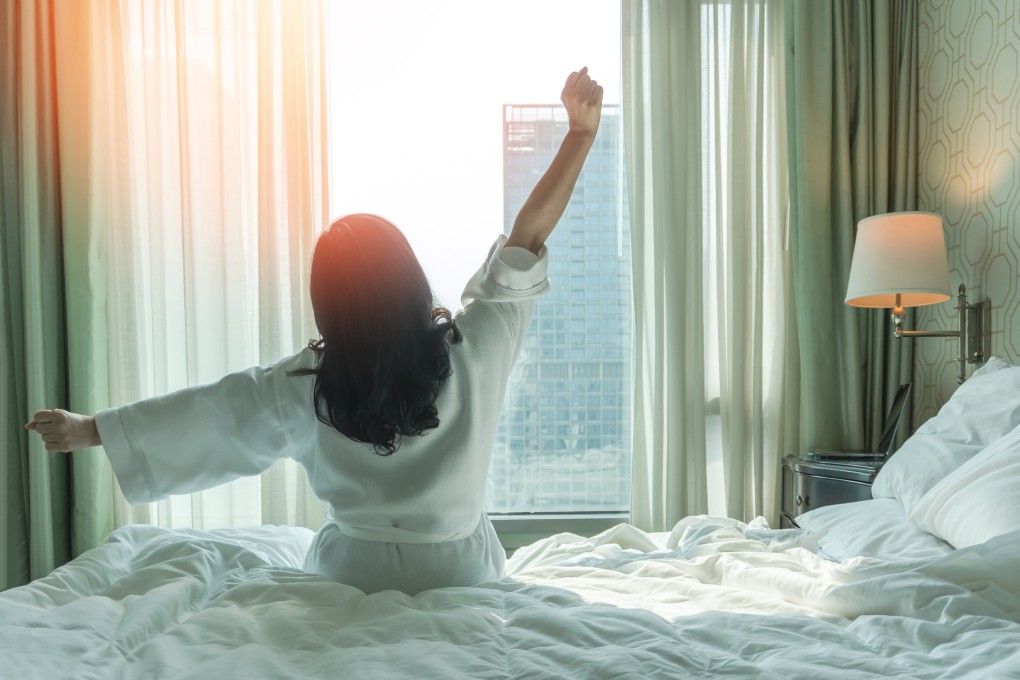How to get a good night’s sleep in an overstimulated world – is sleeping well really a skill that insomniacs can learn?
In the dark when it comes to slumber? The secret to doing something that should come naturally can be taught – because sleeping is a skill

This correspondent never needs one of those “please wake for meals” stickers when flying. Because he’s always awake – unlike his regular travel partner, who often sleeps through taxiing, take-off, landing, taxiing and much in between.
To the exhausted insomniac, in the air or on the ground, the ability to sleep whenever, wherever, must seem a blessing. Or is it a magic trick that can be learned? A skill to be mastered?
To sleep, perchance to wake four or five times in the night to go to the bathroom, or to be startled awake by one’s own sleep apnoea? That is the question.
This year’s annual World Sleep Day, on March 15, came and went without my noticing, not because I was dozing like Rip Van Winkle, but perhaps because it isn’t taken seriously. Organised by the World Sleep Society, it doesn’t award observers an extra day in bed, unfortunately, but does promote the benefits of healthy sleep and publicises the deleterious effects of its absence.

On an economic level, productivity lost to chronic sleep deprivation is enough to keep governments awake at night. A 2022 Casper-Gallup poll indicated that annually, poor sleep hit the United States’ economy to the tune of about US$44.6 billion in lost productivity.
In April, a China Daily report into personal sleep bankruptcy suggested that it affected roughly 74 per cent of Hong Kong residents surveyed. A report published this year by The British Medical Journal, building on previous studies, refers to Hong Kong as “a region that has become known as one of the most sleep-deprived places in the world”, its sleep problems being “associated with a range of health conditions”.
